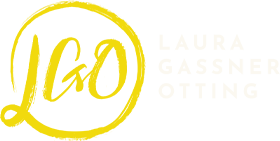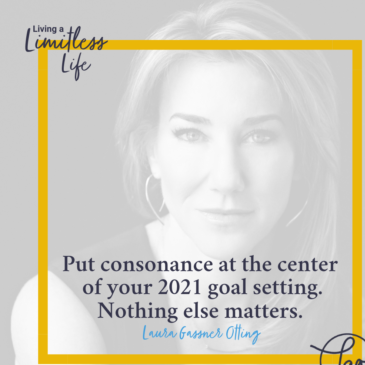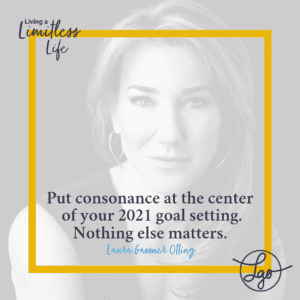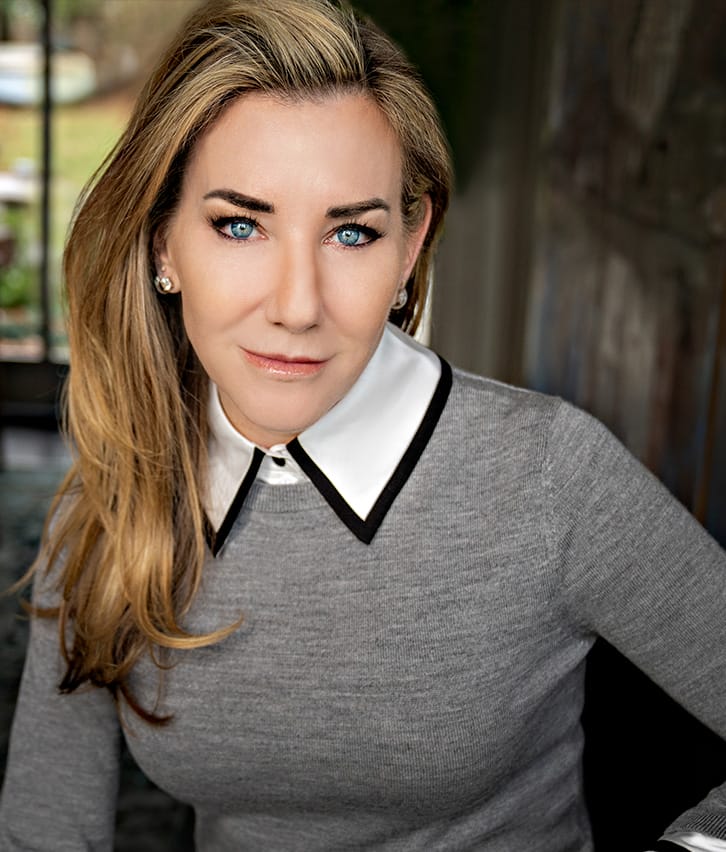Goal setting is hard, but it doesn’t need to be.
Once upon a time, long ago, likely before you were even conscious of what was happening, someone handed you a scorecard.
And, on that scorecard there were a great many items: the right school, the right internship, the right job, the right spouse, the right house, the right kids, the car, the right clothes, the right size.
If you’re anything like me, you twisted yourself into knot trying to achieve everything on this scorecard, often fueled by year-end furious goal setting sessions. And, if you’re anything like me, even when you achieved it, you don’t feel all that happy.
Why is this?
Over the course of interviewing thousands of leaders during a 20 year career in executive search, I was taken by the fact that even though I was calling all of these super successful people — success being the main reason a headhunter comes a’callin — they were returning my calls because they weren’t all that happy.
Success didn’t equal happiness for them. And, it didn’t equal happiness for me. And, it might not equal happiness for you.
So, what does? It’s not your traditional goal setting nonsense. I don’t want that for you, for your 2021 goals.
In order for your success to bring you happiness, it was to be consonant with who you are and what you care about. This idea of consonance is at the cornerstone of my book, Limitless: How to Ignore Everybody, Carve Your Own Path, and Live Your Best Life. You can read more about consonance, here.
But, for now, let’s look at 2021. If you want to set goals and make 2021 your best year yet, stop listening to the hustle porn instafluencer crowd bullying you to “Crush It!” Instead, let’s start by eschewing everyone else’s ideas of what success means and asking yourself three important questions.
-
What is the problem that I want to solve in my home, in my community, in my company, or in my country?
-
What is the solution that this problem needs, and do I have the ability to provide that solution?
-
What is the best way for me to provide this solution?
Because I never ask you to do anything I wouldn’t do, here’s mine:
-
I want to empower more people to live that big, juicy life that they were put on this planet to live, because in your genius is love, and profit, and joy, and cures, and bounty.
-
I believe that people need to be unstuck from the limits placed in their heads by parents, teachers, bosses, and social media. My superpower is to see the greatness in others and reflect it back on them in ways that they’ve either never seen it before or can finally see it, believe it, and act upon it to do incredible things.
-
I used to think it was the stage, and now I understand that I can reach even more people in a scalable and even more profitable way through the screen, but this entails a laser focus on my content, and research for the next book.
Let’s break down these questions for your own goal setting.
Goal Setting Question 1: What is the problem that I want to solve in my home, in my community, in my company, or in my country?
This is your calling. This is the gravitational force that gets you out of bed in the morning. It’s a cause you want to serve, a business you want to build, a leader you want to follow, a family you want to nurture. It might be the thing that bring you joy, it might be the thing that brings you righteous indignation. The solution is the champagne moment you can’t wait to celebrate.
It’s your why.
And, if it’s not the centerpiece of your 2021 goals, nothing else matters.
Goal Setting Question 2: What is the solution that this problem needs, and do I have the ability to provide that solution?
Notice that I didn’t ask, “How can you solve this problem?”
Too often we ask, “How can I help?” and end up not actually helping. We see problems through the lens of our own solutions. As such, we create a lot of noise and busy and action, but not a lot of impact.
This contrast—the exhaustion from being so busy versus the lack of progress we are actually making—shows up again and again in the conversations I’ve had with hundreds of leaders over the course of my career. The ones who focused on the daily tasks (the action) felt overscheduled and stressed. So many felt unfulfilled, because the root-cause problem never went away. On the contrary, the ones who focused on the results (the impact) felt consonance because they could see the connection between their work and the long-term problems they were trying to solve.
What is the difference between the two? It comes down to asking the right question based on the right perspective.
Those people who choose work based on a question focusing on the short-term action—how can I help?—solve only short-term problems. Now, before you throw tomatoes at me, hear this: solving short-term problems is important work, and it should be attended to. Obviously, the short-term problems still need to be solved, and that activity can create connection for some. Yet most of us are stuck, frustrated, and limited until we also eventually connect that work to the long-term solution. And in my experience, those who focus on the long-term solutions, and who feel more consonance (and less burnout) over time, are asking a different question: What needs to happen?
(If you want more on this idea, watch my 2016 TEDx in which I break down the differences between the two questions.)
Goal Setting Question 3: What is the best way for me to provide this solution?
This is the hardest question, because the temptation to answer small looms large. I’ve fallen victim to this myself, micro-planning my way towards a pretty little car but never actually taking it out of the road and opening it up at top speed. It’s the business equivalent to lipstick on a pig.
Remember that your best way to provide a solution is possibly overhauling everything you’ve done or known to date and looking at things completely differently. In my example, I went from stage to screen. I thought in 2019 that an audience of 5000 was a super bucket list draw; in 2020 I realized that there are billions of people in the world and all I needed was a webcam and an internet connection to reach an unlimited number.
I was thinking small, I was micro-planning, and I should have questioned the very premise on which everything rested. My definition of “speech” was that which I give on stage. And “stage” was an actual stage. I had to learn to think differently. And so do you.
Goal setting for 2021 really is simple as that.
Figure out what matters to you, what those problems need, and how you can be part of the solution. That’s the key to your 2021 goals. For, it is success in the things that actually matter to you that bring happiness. That’s when “what you do” matches “who you are” and you become truly limitless.
